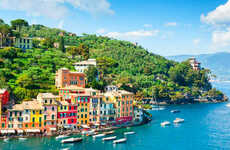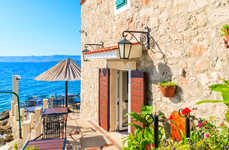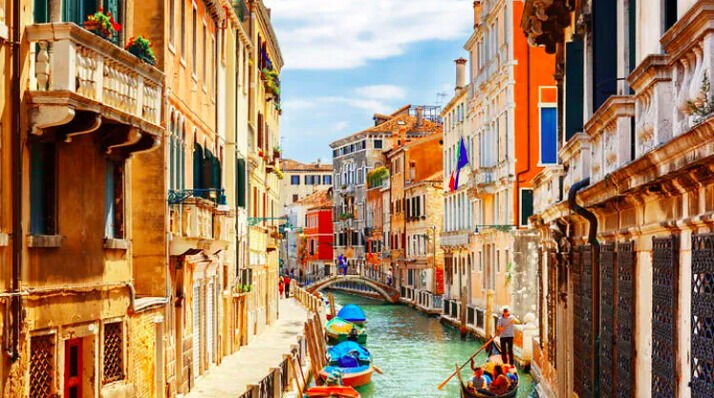
Venice's Tourist Tax Will Charge Visitors €5 During Peak Times
Ellen Smith — January 23, 2024 — World
References: euronews
In an effort to curb over tourism, Venice's tourist tax will charge visitors €5 to enter the city during peak times.
The tax is exclusively applicable to those entering the old city and its lagoon region, excluding commuters, locals, and travelers visiting certain islands like Burano and Murano. Primarily aimed at deterring day-trippers, the 5 euro tax, will not turn a profit for the city, but aims to cover the booking fee. Visitors will benefit from streamlined processes, as a QR code will be issued for efficient payment. This strategic initiative aligns with Venice's efforts to strike a balance between preserving its cultural heritage and managing the environmental impact of tourism, offering a more sustainable experience for conscientious visitors.
Image Credit: Shutterstock
The tax is exclusively applicable to those entering the old city and its lagoon region, excluding commuters, locals, and travelers visiting certain islands like Burano and Murano. Primarily aimed at deterring day-trippers, the 5 euro tax, will not turn a profit for the city, but aims to cover the booking fee. Visitors will benefit from streamlined processes, as a QR code will be issued for efficient payment. This strategic initiative aligns with Venice's efforts to strike a balance between preserving its cultural heritage and managing the environmental impact of tourism, offering a more sustainable experience for conscientious visitors.
Image Credit: Shutterstock
Trend Themes
1. Curbing Over Tourism - The introduction of tourist taxes in European cities, such as Venice, aims to deter day-trippers and manage the environmental impact of tourism.
2. Efficient Payment Methods - Streamlined payment processes, such as issuing QR codes for payment, are being implemented to enhance the visitor experience and optimize revenue collection.
3. Sustainable Tourism - European cities, like Venice, are striving to strike a balance between preserving cultural heritage and offering a more sustainable experience for conscientious visitors.
Industry Implications
1. Hospitality - Hotels, resorts, and other accommodations can implement efficient payment methods to simplify guest transactions and enhance customer satisfaction.
2. City Governance - Municipal authorities and city governments can explore the implementation of tourist taxes as a means to manage over tourism and generate additional revenue for preserving heritage sites.
3. Technology - Technological advancements, such as QR code payment systems, present opportunities for companies to develop innovative solutions for streamlining payment processes in the tourism industry.
2.3
Score
Popularity
Activity
Freshness
























